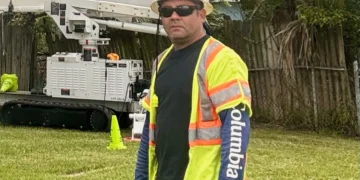Trust in science is arguably one of the most critical factors in today’s society. With the increasing prevalence of alternative facts and the spread of misinformation, it is more important than ever to have faith in the accuracy and reliability of scientific research. However, recent survey data has shown a decline in trust in science, which is causing concern for the scientific community. This trend mirrors declines in trust for other institutions, such as journalism and government. This raises the question: why are we losing trust in science, and what are the implications for science communication?
According to a recent survey conducted by the Pew Research Center, the general public’s trust in scientists has decreased significantly over the past few years. In 2016, a majority of Americans (72%) expressed a great deal or fair amount of confidence in scientists to act in the public’s best interests. However, by 2020, this number had dropped to 67%. This decline in trust is not unique to the United States; similar trends have been observed in other countries as well.
One of the main reasons for this decline in trust is the rise of pseudoscience and the spread of misinformation on the internet and social media. With the rise of fake news and conspiracy theories, it is becoming increasingly challenging for people to differentiate between reliable and unreliable sources of information. This has led to a skepticism towards science and a belief that scientists may be biased or influenced by external factors.
Moreover, the politicization of science has also played a significant role in the erosion of trust. In today’s polarized political climate, scientific findings are often interpreted through a partisan lens, and scientists are often portrayed as being on one side or the other. This can lead to a lack of trust in the scientific community as a whole, as people may feel that scientists are being influenced by political agendas rather than presenting objective and unbiased information.
Another factor contributing to the decline in trust in science is the lack of diversity and representation within the scientific community. People from marginalized communities may feel that science is not inclusive and does not consider their perspectives and experiences. This can lead to a lack of trust in the validity and relevance of scientific research for these communities.
The implications of this decline in trust in science are significant. One of the main concerns is the impact on public policy and decision-making. When trust in science is low, it becomes difficult to convince policymakers and the general public to support evidence-based policies. This can have dire consequences, especially in areas such as public health and environmental protection, where decisions need to be informed by scientific research.
Moreover, this decline in trust in science also has implications for the scientific community itself. It can lead to a lack of funding and resources for scientific research and negatively impact the career prospects of scientists. It can also lead to a loss of public support for science, which is essential for promoting scientific literacy and engaging the public in discussions about scientific advancements and their impact on society.
So, what can be done to restore trust in science? The first step is to address the root causes of this decline in trust. This includes combating misinformation and promoting critical thinking skills that can help people distinguish between reliable and unreliable sources of information. It also involves depoliticizing science and promoting diversity and inclusivity within the scientific community.
In addition, effective science communication is crucial in rebuilding trust. Scientists need to engage in open and transparent communication with the public, explaining the complexities of their research and the limitations of their findings. They also need to listen to and address the concerns and perspectives of the public, giving them a voice in the scientific process.
Collaboration between scientists, policymakers, and the media is also essential in promoting trust in science. The media plays a crucial role in shaping public perception of science, and therefore, it is vital to ensure accurate and responsible reporting of scientific research. Policymakers also have a responsibility to base their decisions on reliable scientific evidence and involve scientists in the policymaking process.
In conclusion, the decline in trust in science is a concerning trend that has implications for both the scientific community and society as a whole. It is crucial to address the root causes of this decline and promote effective science communication to restore trust. As society continues to face complex challenges, such as the COVID-19 pandemic and climate change, it is essential to have trust in the scientific community to guide us towards evidence-based solutions. Let us work towards rebuilding trust in science and promoting a society that values and trusts the power of scientific research.





